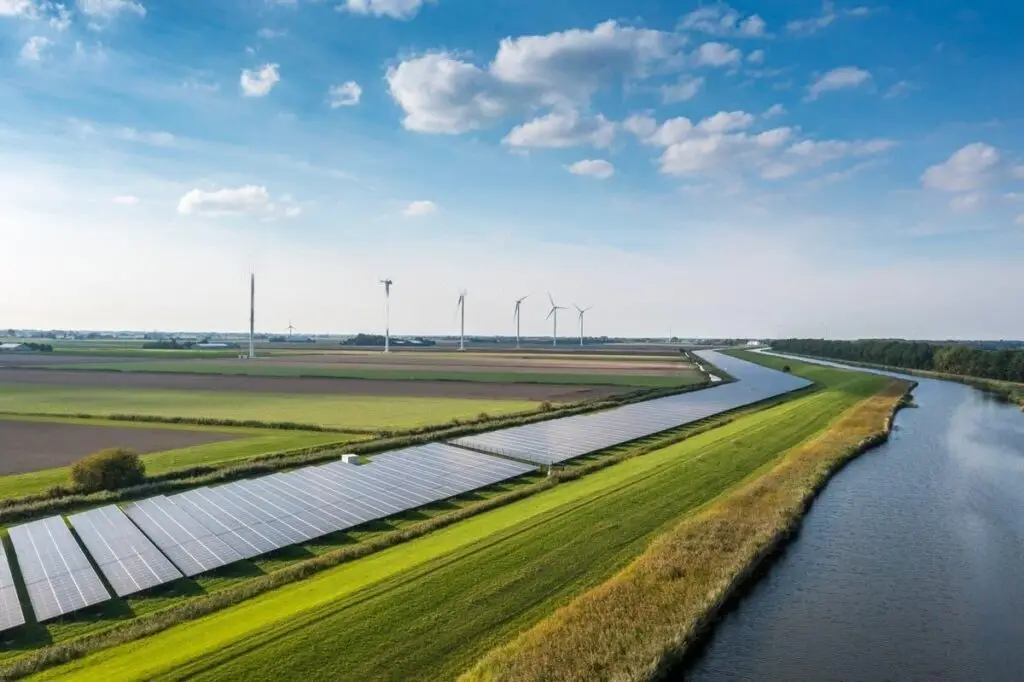With global businesses increasingly striving to reduce their carbon footprints, reaching goals such as RE100 becomes vital. This initiative encourages companies to operate entirely on renewable energy.
One such company making significant strides towards these targets is Delta. A leader in power management, Delta aims to achieve 100 per cent renewable energy use across its EMEA operations by 2025.
Challenges of Meeting RE100 Targets
Pursuing RE100 targets across EMEA presents various complexities. Every region has unique renewable energy options, climate objectives, and regulations. Navigating such a diverse landscape is no simple feat.
As Dalip Sharma, President and General Manager of Delta Electronics, EMEA region, elucidates, tracing renewable energy sources involves understanding regional differences in renewable energy certificates. These certificates contain detailed data, ensuring the energy stems from specific renewable sources.
For certificates to be valid across countries, two requirements are essential: interconnected grids, and membership in the Association of Issuing Bodies (AIB). Hence, an energy certificate from Germany is applicable in the Netherlands, yet not in Poland or Malta due to these stipulations.
Sourcing Renewable Energy: A Diverse Approach
Delta utilises a blend of strategies to source renewable energy. This includes self-generating solar power from photovoltaic panels on their buildings and acquiring green electricity from utility providers. This multi-faceted approach caters to the diverse energy markets within the EMEA region.
In certain markets where direct access to green electricity is limited, Delta purchases renewable energy certificates separately. This ensures they maintain a renewable energy supply no matter the geographical hurdles.
To enhance renewable energy usage further, Delta is focused on increasing on-site solar PV generation. This proactive approach not only bolsters their renewable energy share but also supports global growth in renewable power generation.
Internal Carbon Pricing as a Catalyst
Delta’s implementation of an internal carbon pricing (ICP) scheme in 2021 significantly disincentivised the use of non-renewable energy sources.
By imposing an additional €2 charge on every €1 spent on grey energy, Delta encourages its facilities to favour renewable alternatives. The revenue generated from these charges funds Delta’s green initiatives worldwide.
This green virtual fund supports investments in renewable infrastructure, energy-efficient projects, and waste reduction efforts. In 2023 alone, the ICP fund facilitated approximately $70 million in green investments, enhancing Delta’s commitment to sustainability.
Advice for Fellow RE100 Members
Dalip Sharma offers vital advice for companies aspiring to meet RE100 targets. Firstly, persistence is key. Businesses should brace for challenges yet remain undeterred in their pursuit of 100 per cent renewable power.
Secondly, Sharma emphasises the continuous quest for energy efficiency. Even for facilities with existing green certifications, exploring new avenues to conserve energy remains crucial.
Finally, Sharma highlights the advantages of on-site renewable energy generation. Such investment not only reduces costs but also accelerates the transition to renewable power, benefiting both the company and the broader renewable energy sector.
Delta’s Future Path to Carbon Neutrality
Achieving RE100 is merely a milestone for Delta. Their ultimate goal is carbon neutrality across global operations by 2030. This ambitious target underscores Delta’s commitment to substantial environmental impact reductions.
Being Asia’s first technology hardware company to pass the Science-Based Targets review, Delta plans a 90 per cent reduction in all Scope 1-3 emissions by 2050. This journey requires a concerted global effort, including close collaboration with suppliers to mitigate their carbon footprints as well.
Furthermore, Delta conducts tailored training sessions for suppliers, empowering them to align with Delta’s environmental standards. This collective effort is pivotal for reaching their comprehensive sustainability objectives.
Conclusion
Delta’s commitment to renewable energy and its journey towards RE100 offer valuable insights for the business landscape. The lessons learnt and strategies adopted serve as a blueprint for other companies aiming for sustainability.
As Delta continues to forge ahead, their unwavering dedication to environmental goals remains an inspiration. Their successes and challenges present a compelling narrative for achieving a greener future.
Delta’s commitment to renewable energy and its journey towards RE100 offer valuable insights for the business landscape. The lessons learnt and strategies adopted serve as a blueprint for other companies aiming for sustainability.
As Delta continues to forge ahead, their unwavering dedication to environmental goals remains an inspiration. Their successes and challenges present a compelling narrative for achieving a greener future.

